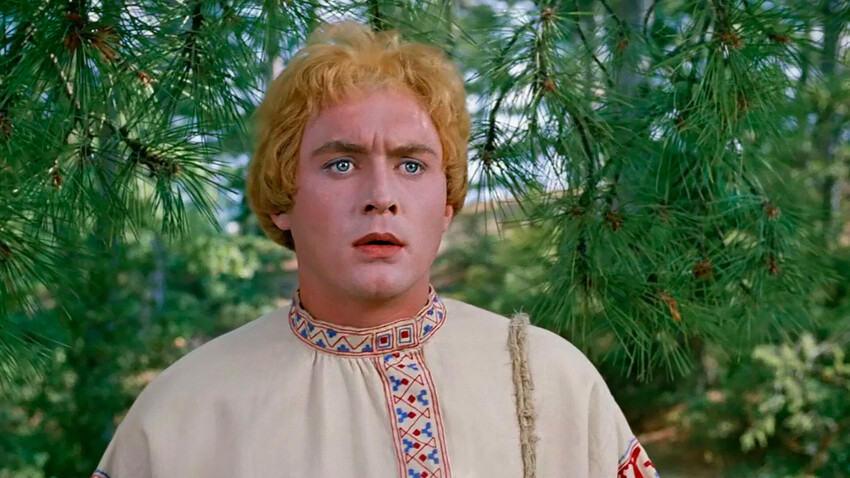
Ivan from 'Morozko' movie, 1964
Alexander Rou/Gorky film studioIn Russian folklore, there is a whole corpus of tales about an incredibly stupid man named Ivan the Fool. He often does things that are unbelievable in their stupidity and absurdity. However, hе, at the same time, always gets away with it - and, moreover, he even gets incredibly lucky and becomes rich or marries a princess. Why did Russian tale writers make such a foolish man a hero and what’s the moral of such fables?
Ivan is one of the most popular Russian folk names. Actually, it has ancient origins in the Hebrew name Yōḥānān (which is probably one of God’s names: Yahweh or Jehovah). The closest relative of this name in English is John (and Jean in French; Giovanni in Italian). The old Church Slavonic form of this name was Ioann.
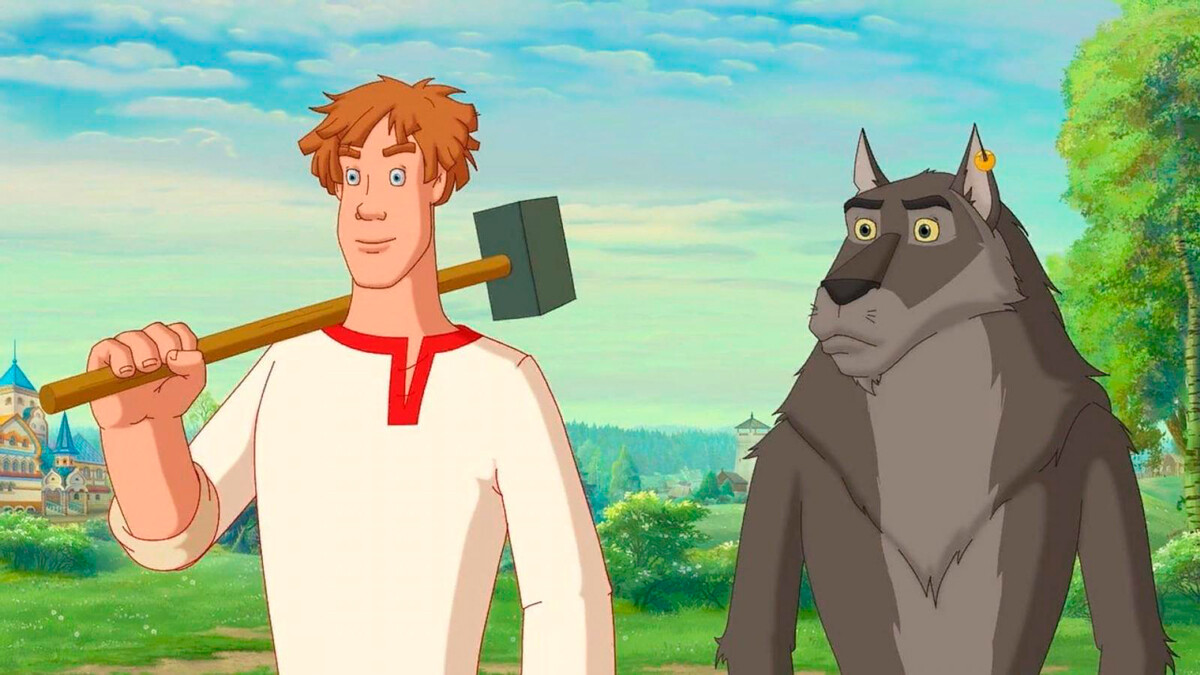
A still from 'Ivan Tsarevich and the Gray Wolf' (2011) animation film
Vladimir Toropchin/Melnitsa Animation Studio, CTBThe short and informal form of Ivan is Vanya. And the ‘Fool’ is the English translation of the Russian word durak. So, in different tales, this character can also be named Vanka-durak or Ivanushka-durachok, which is a very soft and gentle version of the nickname.
Ivan the Fool is usually a peasant young guy, a son of poor and old parents (and, frequently, the third son in the family). Usually, the Fool does some absolutely awkward things and messes everything up. Parents send him to buy food, but, while coming home, he gives away everything, feeding birds or even his own shadow, for example. Or he is asked to buy a table - but despite carrying it home, he decides that the table has four legs just like a horse and can run home by himself (and leaves the table on the road)...
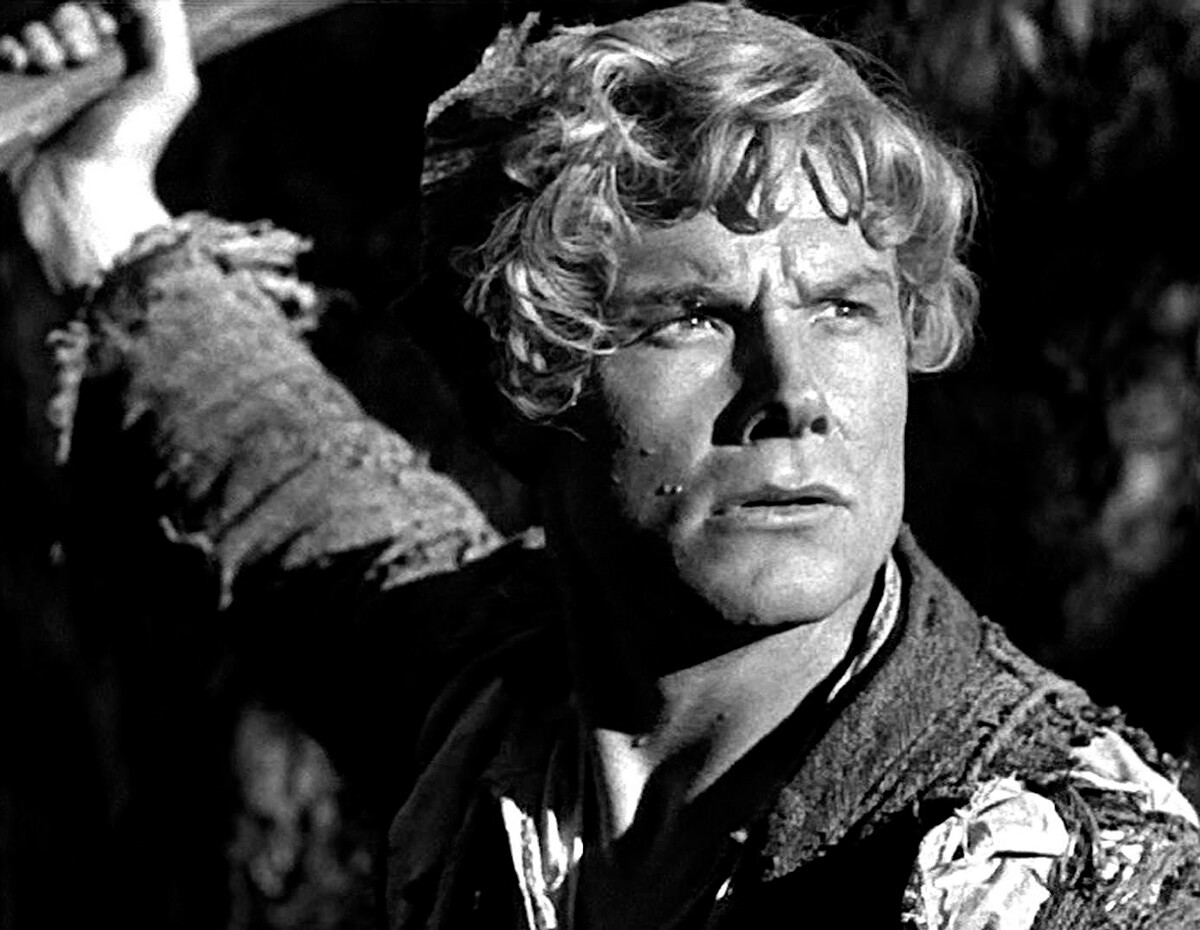
Ivan from 'Vasilisa the Beautiful' (1939) movie
Alexander Rou/SoyuzdetfilmThere are plenty of small tales describing Ivan’s foolishness. At the same time, in the very end, Ivan suddenly gets lucky and succeeds in all of his doings. While the two older sons act on the principle of practical reason, Ivan, relying on his own intuition, often makes unconventional decisions, often contrary to common sense. At the same time, he doesn’t shy away from strange advice from the outside and believes in legends and mythical beliefs about magical worlds.
For example, in the popular tale titled ‘Sivko-Burko’, Ivan finds out about the legend of a magic horse named Sivko-Burko that can help one with anything. The horse should be called in a clear field and, when it comes, one must go into its right ear and come out through its left ear, thereby turning into a handsome young man after all. Sounds weird, doesn’t it? The two older brothers laugh at the legend, but Ivan tries it - and it actually worked. With help of the magic horse, he successfully accomplished a difficult challenge and, as a result, married a princess!
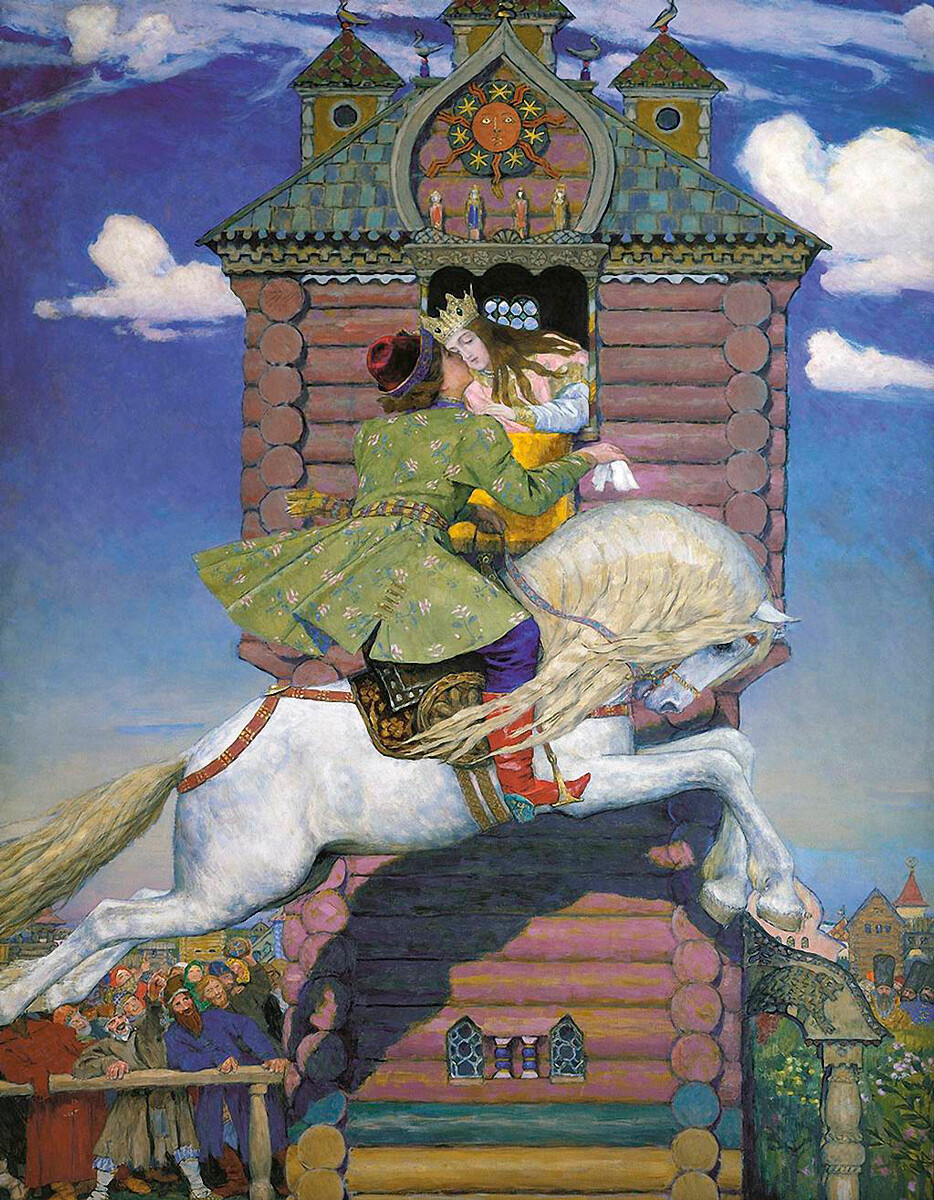
Viktor Vasnetsov. Sivko-burko, 1926
Public domainThe folk tales usually reflect the national character. Ivan the Fool is such a national hero, an ordinary and naive man who didn’t have anything but got everything. That’s almost the definition of the Russian dream. Being from low origins, not having a chance to achieve big things (and actually not trying to), but waiting for a magic power to help.
Ivan the Fool usually relies on the Russian phenomenon of avos, a commonplace notion in the lives of folk life. It is a hope for success, without doing anything for it, and without having many reasons for success. It is a hope and a trust in help from God and supernatural forces.
And finally the ordinary people needed to believe in tales, and magical creatures and handsome princes doing some great stuff are not very realistic to believe in.
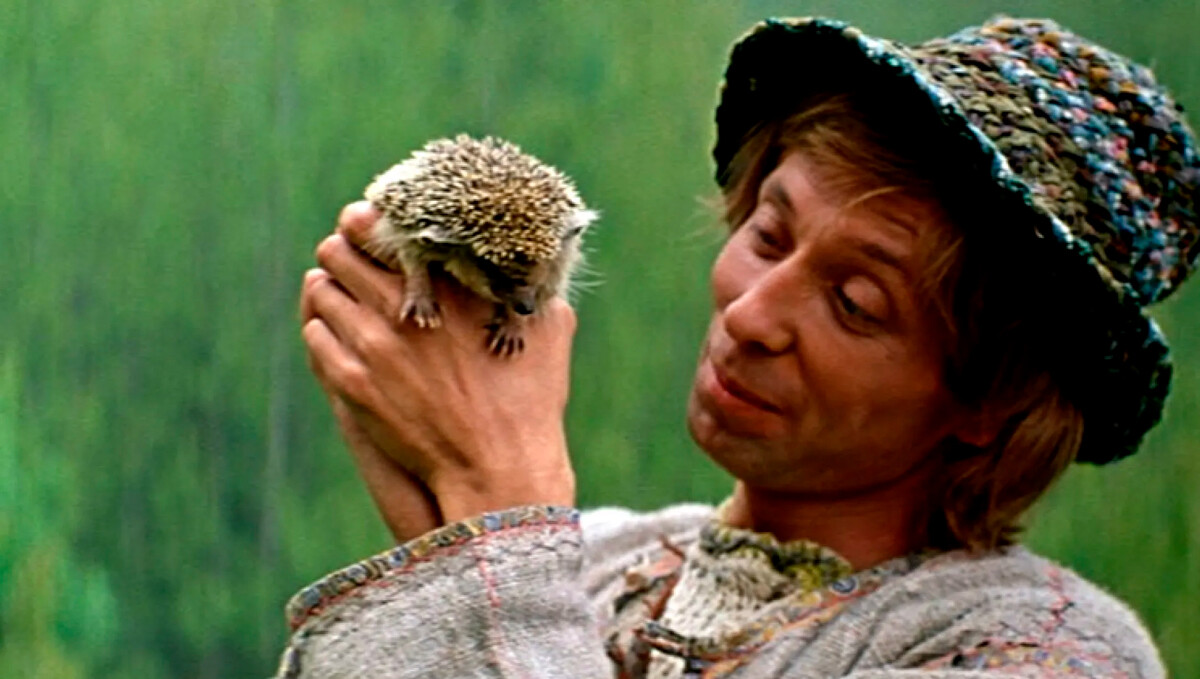
Actor Oleg Dahl as Ivan in 'How Ivanushka the Fool Travelled in Search of Wonder' (1977) movie
Nadezhda Kosheverova/Lenfilm studioRussian folk tales were incredibly embraced by the Soviet authorities. As revolutionary leader Vladimir Lenin defined it, a folk tale, and a magical fairy tale, primarily expresses “the aspirations and expectations of the people”. And undeservedly oppressed characters (such as the youngest son or the stepdaughter like Cinderella) from the lowest levels of society became new heroes. A naive peasant guy that achieves his goal while an educated and rich man is left behind - that’s the perfect plot for Soviet propaganda.
There were many movies and animation films produced back in the Soviet time featuring Ivan the Fool: ‘How Ivanushka the Fool Traveled in Search of Wonder’, ‘Vasilisa the Beautiful’, ‘The Humpbacked Horse’ and others.
As mentioned above, Ivan is frequently the third son in the family and contrasting to his older brothers, who are smart and young adults. They usually already live their own lives and they are usually Ivan’s main antagonists. They get incredibly annoyed by his stupidity, they beat him, but then they get jealous of his lucky fools and are absolutely mad at him. In some tales, they even try to kill him to get his treasures - but get fooled instead.
Actually, this plot line reflects the real circumstances of the youngest peasant sons. Usually elder brothers leave the parents’ house and build their own, while the youngest stays with parents and helps them (usually already elderly people) - he and his wife live with them until they pass away and inherit the house (which often make elder brothers jealous).
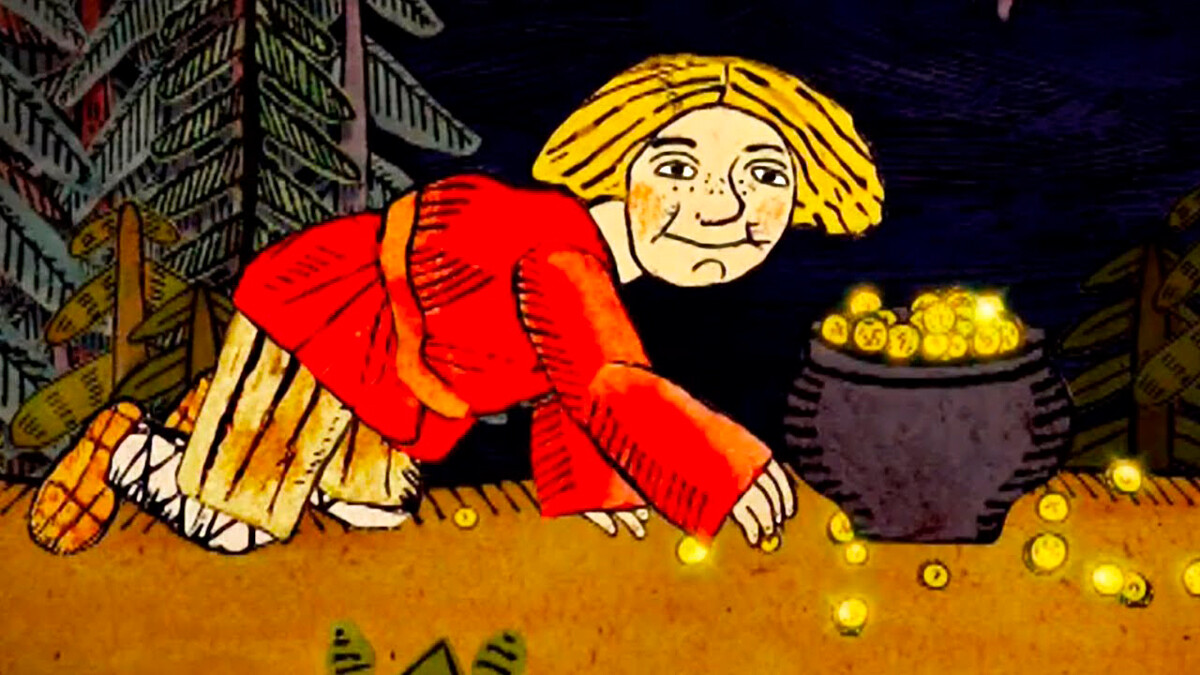
A still from 'About Ivan the fool' (2004) animation film
Mikhail Aldashin/Pilot studio“The motif of undeserved persecution suffered by the hero reflects the process of decay of the primitive communal system, the patriarchal order, the transition from the clan,” the folklore scholar Eleazar Meletinski writes in his book ‘The Hero of the Magic Tale’. “It depicts the disintegration of the large family in the form of discord in the small family, for example, in the form of betrayal by the older brothers betraying the younger.”
Ivan is in a strange relation to the magical forces and, being open-minded, he is the only one to communicate with the other world. If we look for parallels in real life, there was a Russian phenomenon called ‘the holy fool’. Usually, there were wandering monks who had a very ascetic lifestyle, usually walking barefoot and wearing tattered clothes. Their “foolishness for Christ” was on purpose, they acted like they were fools, which allowed them to speak out loud all the bitter truth that no one else dared to voice. These fools were considered “blessed” and almost saints (and even tsars could listen to holy fools perceiving their words as prophecies). So, in the tradition of the Russian Orthodox Church, it was commonly accepted to be lenient to fools, to help them, feed them and dress them.
“The hero of a magical Russian fairy tale is the youngest of the three brothers, either as Ivan the Fool, the peasant’s son, or as Ivan Tsarevich (in fairy tales of the epic-heroic type),” Meletinski states.
So, besides Ivan the Fool, the Russian fairy tales had also another famous Ivan - Ivan Tsarevich (son of a tsar). Despite holding the same name and function, he’s a different character, a strong, brave and beautiful young man who usually takes a long and complicated journey to save a princess from evil forces (such as Koschei the Immortal). Ivan Tsarevich can ride a wolf, catch the magic firebird and all animals help him in his difficult challenges. Finally, the hero wins the heart of a beautiful princess he saved.
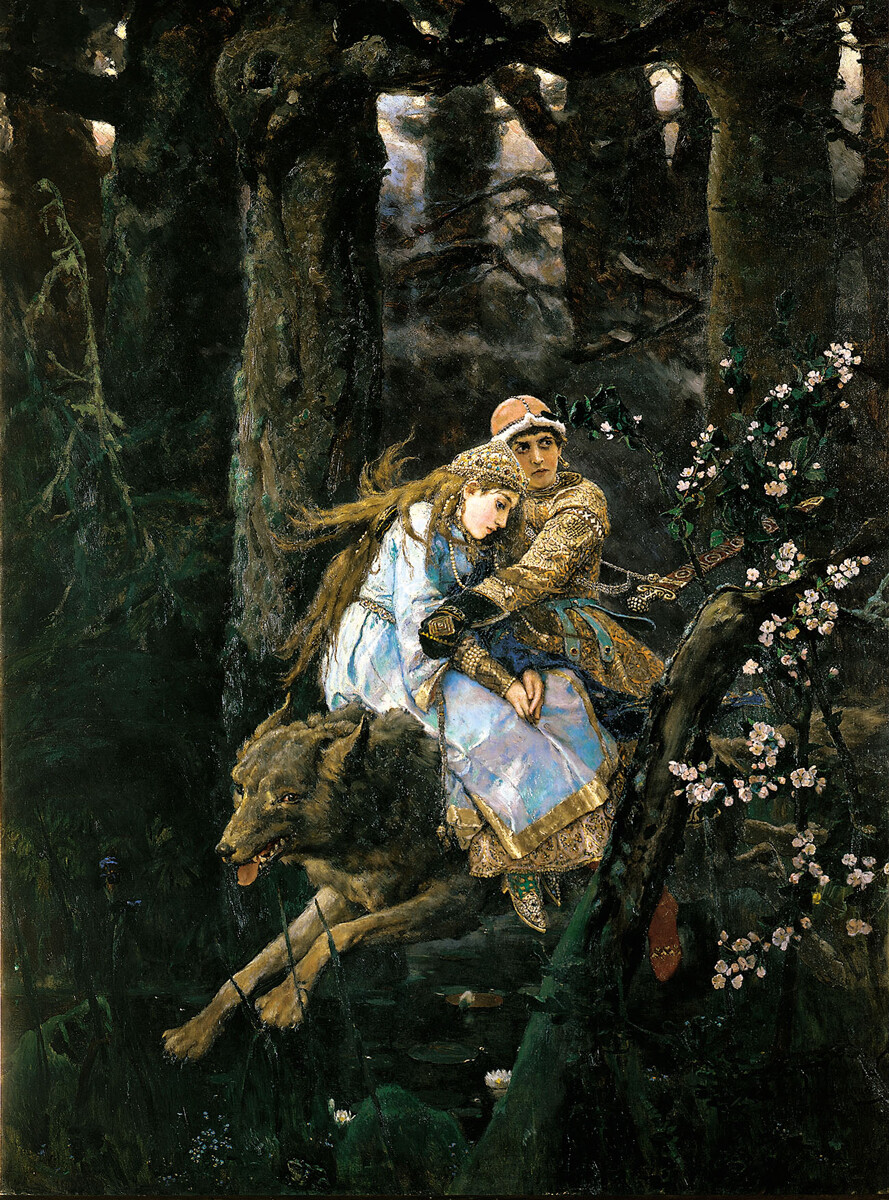
Victor Vasnetsov. Ivan Tsarevich riding the Gray Wolf (1889)
Tretyakov galleryAlthough Ivan Tsarevich is a prince and son of a tsar, he is usually a kind and unspoiled guy (having been brought up with no rights to the throne). For this reason alone, it appears that Ivan the Fool is closer to regular Russian people. ‘Vanka-durak’ became a very common nickname for a male peasant, a very naive and not very educated man, but a real human, a sincere one and one believing in God and magic.
Dear readers,
Our website and social media accounts are under threat of being restricted or banned, due to the current circumstances. So, to keep up with our latest content, simply do the following:
If using any of Russia Beyond's content, partly or in full, always provide an active hyperlink to the original material.
Subscribe
to our newsletter!
Get the week's best stories straight to your inbox